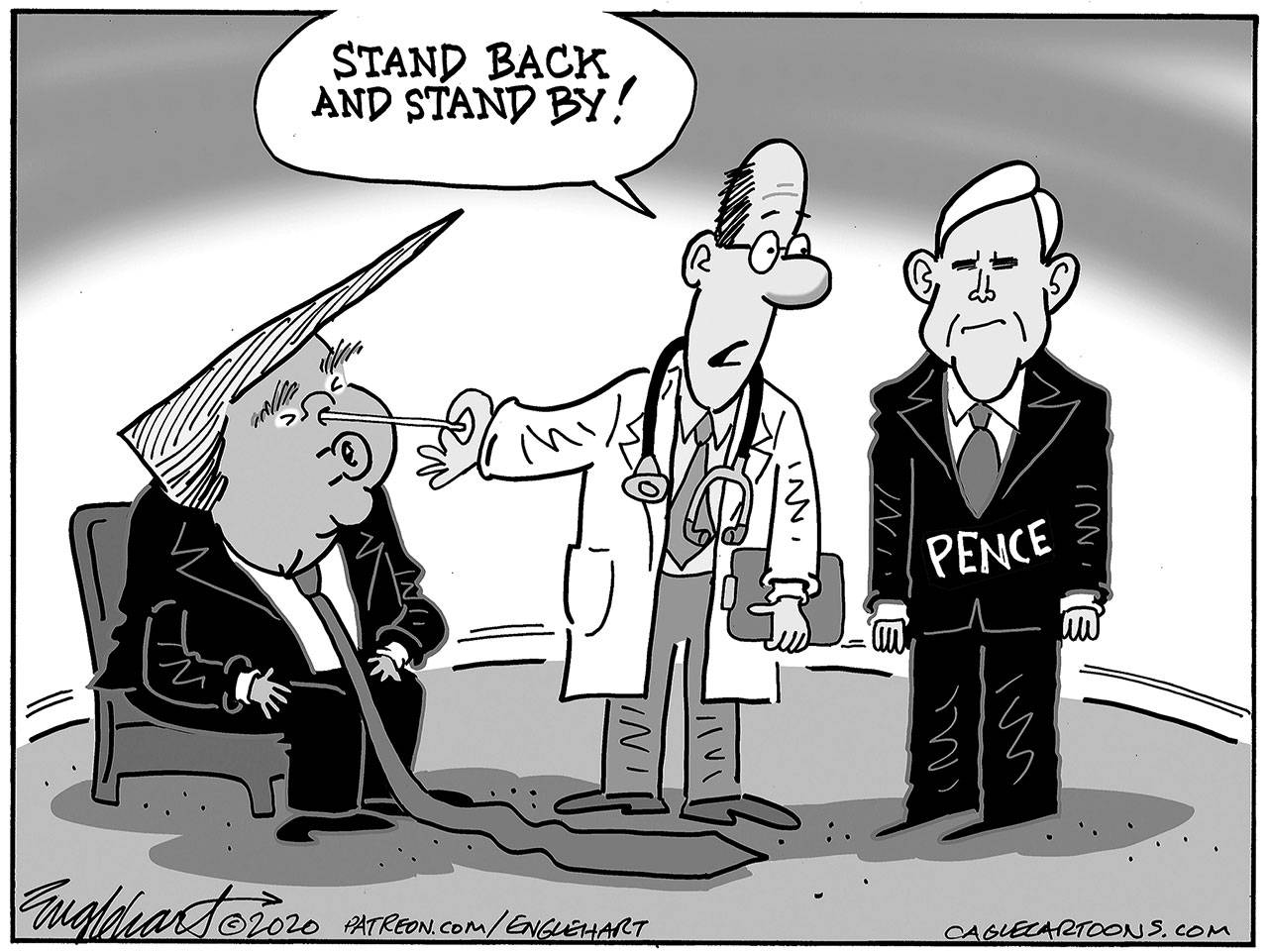By Dan Rodricks
The Baltimore Sun
I note that just hours before President Donald Trump reported that he and First Lady Melania Trump had tested positive for the coronavirus, the Trump administration announced that the nation would close the door to even more refugees who seek our help. We will now take in only 15,000 people, many of them children, fleeing famine, persecution and civil strife.
That’s a record low in annual admissions and, as a measure of American empathy, a national disgrace.
“As the world experiences one of the most severe refugee crises in recorded history, the Trump administration has decided, yet again, to turn our back on the globe’s most vulnerable,” said Ben Cardin, a Democrat and Maryland’s senior senator.
I find the juxtaposition of Trump’s virus infection and the new refugee limit obvious and profound: A president completely without empathy toward others now tests the capacity of others to be empathetic toward him.
Before I go on, a few words about that word: Empathy means having the ability to relate to the feelings of others, their circumstances or the lives they’ve lived. It means being generous in your understanding of all kinds of people, as if their experiences could be yours.
I consider the refugee limit a gauge of America’s official empathy, our ability as a nation to understand the dire problems faced by others. In biblical terms, it’s a measure of our willingness to welcome the stranger.
I went to bed Thursday night angry that Trump’s xenophobia and his racism —amplified by his inability to state clear opposition to white supremacy —had again informed our national policy. At a campaign rally in Duluth on Wednesday, Trump told Minnesotans that, if Joe Biden were to defeat him in November, Biden would “inundate your state with a historic flood of refugees.” He again derided Minnesota Rep. Ilhan Omar, who came to the U.S. as a refugee, became a citizen and, in 2016, the first Somali-American elected to Congress. Trump complained that Omar “tells us how to run our country.”
This kind of detestable talk brings to mind the worst Trump policies —his treatment of migrants at our southwestern border, the cruel separation of children from their parents, his opposition to taking in immigrants from poor countries, his refusal to protect the Dreamers, the young, undocumented immigrants who entered the country as children with their parents.
Even if you don’t believe these policies stem from Trump’s racism, he certainly uses them to appeal to Americans who, he believes, harbor racist thoughts about the country’s ever-changing demographics.
At the very least, Trump’s attitude toward immigrants and refugees —and toward Americans who have suffered and died through the coronavirus pandemic —reveals evidence of “empathy deficit disorder.”
That’s a term frequently invoked by Joe Ehrmann, the life coach and minister who once played for the Baltimore Colts. Ehrmann sees it throughout American society, especially among self-centered men who, like Trump, believe ends justify means, even if the means be immoral. Those who are fixated on winning at all costs have little time for or interest in empathy.
On Friday, we woke to the news that Trump and his wife, Melania, had contracted the virus that has killed more than 200,000 Americans in a pandemic that Trump downplayed and mismanaged.
The first temptation was to laugh sardonically, to join the immediate mass told-ya-so in social media.
But then came quickly the second thought: Wish this plague on no one, or wish it on yourself. And remember what the former First Lady, Michelle Obama, said: “When they go low, we go high.”
Does this make me empathetic toward Donald Trump?
Yes, because the virus is still out there, and we’re all still vulnerable. I don’t wish illness on anyone. That’s not something I just made up. That’s a basic rule of the human race.
The year 2020 has delivered to America lots of challenges, and here’s the latest: Feeling empathy for a man who feels none for others.
I keep hearing the voice of the late Elijah Cummings, who died a year ago this month: “We are better than this.” I even have a face mask with those words, created and sold by his niece, Deborah Cummings-Thomas.
Those words were aspirational but founded in Cummings’ belief that the majority of Americans want a country where diversity is celebrated not feared, where immigrants are welcomed not caged, where science is exalted not dismissed, where children have access to schools that are well-funded and effective, where everyone has access to decent jobs, to dependable public transportation, to doctors and an affordable health care system.
I could go on, so I will.
We want a country where leaders speak the language of healing and unity, where we confront our biggest problems — climate change, income inequality, institutional racism —and solve them with honesty, wisdom and common sense. We want fewer Americans in prisons, fewer addicted to drugs and alcohol, more children coming out of high school with hopes and dreams.
Little of that happens with Trump as president.
So I hope he can stand for reelection, so that a majority of Americans, wiser and more committed to our democracy, can, in Lincoln’s words, “swell the chorus of the Union” and affirm what this country stands for and what makes it worth saving.
I wish for Donald Trump a speedy recovery in October, and a resounding defeat in November.
(c)2020 The Baltimore Sun
Visit The Baltimore Sun at www.baltimoresun.com
Distributed by Tribune Content Agency, LLC.



